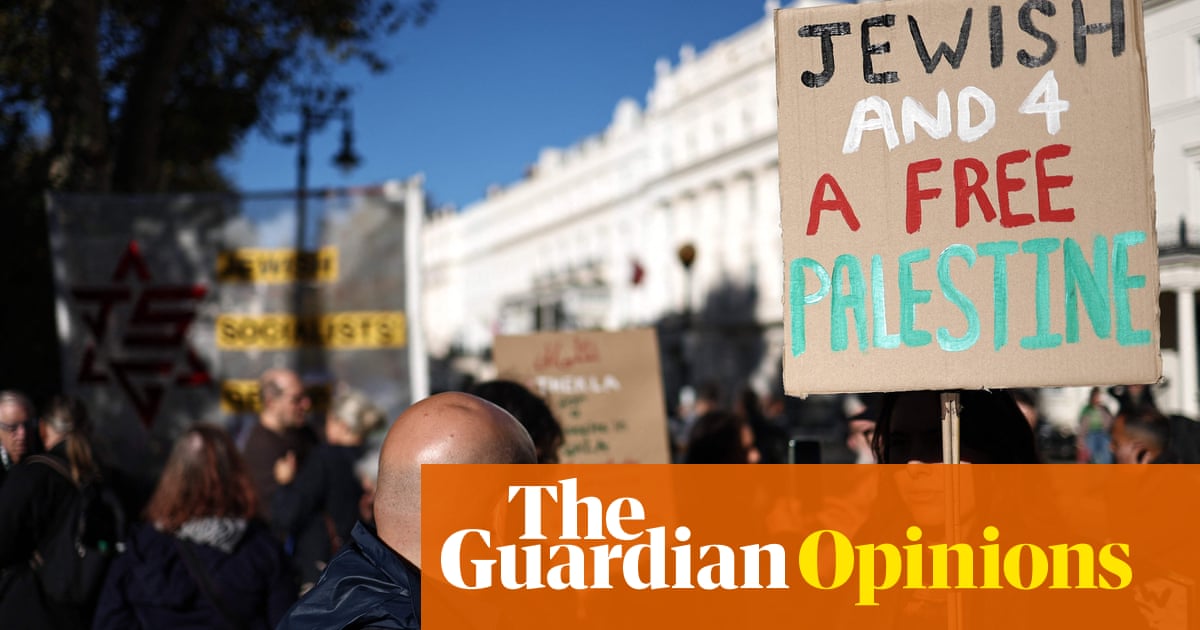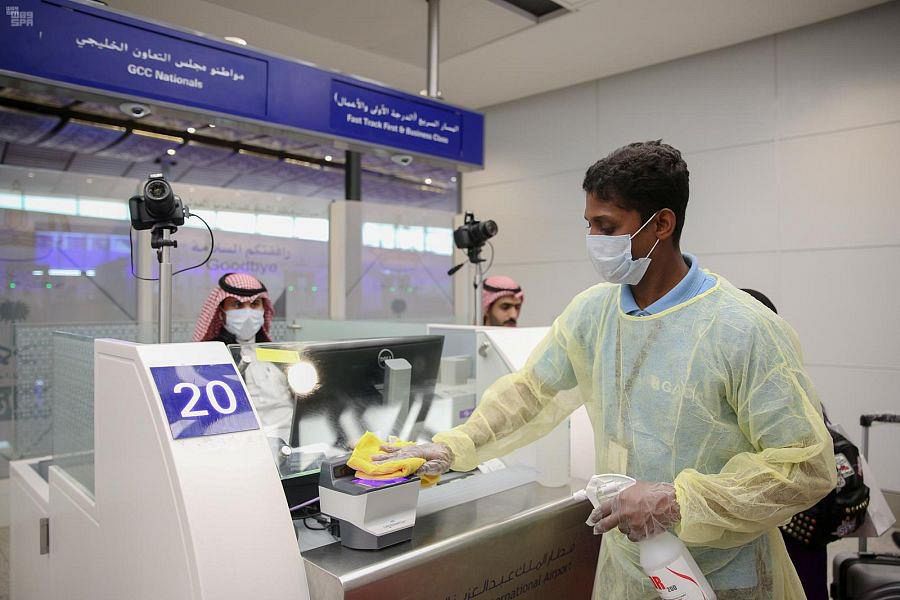
Once again, Israelis and Palestinians are on the brink of a full-blown confrontation, and maybe one that will be worse than any before. Despair and the perception of there being no alternative have taken hold of both protagonists.
Recent events in Jenin, Jerusalem and other parts of the occupied West Bank, which claimed the lives of scores of Palestinians and Israelis, have left both peoples staring into the abyss of another prolonged period of bloodshed, destruction and trauma, but this time without either the hope of a political solution or any firm, proactive international involvement to prevent even deadlier escalation.
The recent visit by US Secretary of State Antony Blinken did little to reassure that Washington is ready to put its full weight behind efforts to prevent such an eventuality.
It would be completely futile to consider, out of context, the deadly attack that killed seven Israelis in Jerusalem on a Friday night a week ago, or the shooting of two Israelis the following day, as mere revenge for an Israeli raid on Jenin two days earlier in which nine Palestinians were killed.
That would be to over-simplify a complex situation that has left both sides blind to any peaceful solution. Most Jewish Israelis believe that the continuation of the occupation, oppression and blockading of Palestinians is the only method of guaranteeing Israeli security. Meanwhile, an increasing number of Palestinians consider resorting to armed struggle as the only way left to them if they are to see their aspirations for self-determination and living with dignity materialize.
Jenin might have become a hub of Palestinian militancy, and Israeli raids inside refugee camps there are meant to prevent attacks on security forces and civilians on both sides of the Green Line. But for decades, Israel has resorted to the very same methods of applying the disproportionate use of force, carelessly harming civilians in the process, while failing to achieve its objective of living without fear for its security.
The international community is watching what is happening to Israel with dread.
Yossi Mekelberg
For too long the Israeli security forces have been treating attacks on civilians and their property, and other violations of their human rights, as no more than collateral damage in a process of containing militancy. All that this achieves, however, is the radicalization of the local population, especially the younger generation, and increasing calls for senior Israeli Defense Forces officers to be investigated by the International Criminal Court for war crimes.
Nothing can justify the random shooting of worshippers leaving a synagogue, and whatever led a lone shooter to commit this atrocity, beyond deep-rooted hatred, went with him to the grave when he was killed by Israeli police officers as he tried to escape. He probably knew that his chances of fleeing the scene alive were slim, as has been demonstrated by previous similar incidents.
The following day it was a 13-year-old Palestinian who shot and wounded two Israelis, before being shot himself, injured and arrested. The Israeli government’s promise of a response, in which it used the phrase “strong, swift and precise,” suggested it would be inflicting further bloodshed and other forms of suffering, mainly on innocent Palestinian civilians, with no hint of reflection on how to transform this vicious cycle of violence into peaceful dialogue.
The wall-to-wall international condemnations of the killing of Israeli civilians is understandable and justified. However, it cannot and should not be taken out of context. Last year was, according to Israeli human rights organization B’Tselem, the deadliest since 2004, in which 144 Palestinians were killed by Israel’s security forces in the West Bank (excluding East Jerusalem). Most of them, according to this and other reports, were unarmed and the victims included children.
Hamas and Islamic Jihad do not cover themselves in glory by hailing the killing of civilians. But depriving these organizations of support will only be achieved by changing the circumstances that empower them in the first place — first and foremost being the occupation and blockade, which must be ended.
The factors that suggest we might be headed for an escalation in violence that is more severe than any we have seen for a very long time include a combination of: The coming to power of the most far-right government in Israel’s history, which is dead set on igniting tensions with the Palestinians; the unpopular and dysfunctional administration of Palestinian President Mahmoud Abbas, which is entering its twilight period, as is the Palestinian Authority; and the rivalry between Fatah and Hamas, with growing support among Palestinians for a return to armed struggle. Meanwhile, the international community remains a mere bystander, refusing to take a stand either politically or morally.
These adverse conditions deepen the political impasse and exacerbate the conditions that provoke further escalation.
The recent incidents mark the first time that such violence has taken place on the watch of the new Netanyahu government, in which the extreme religious-nationalists Itamar Ben-Gvir and Bezalel Smotrich serve as senior ministers and are very much in charge of security, both inside Israel and in the occupied territories.
This is uncharted territory for them and a situation for which they cannot blame others, as they have done for many years. Instead, it is now up to them to provide solutions when security crises emerge. Their answer, however, so far seems to be mainly in the form of more collective punishment, promotion of legislation for the death penalty for terrorists (as long as they are Palestinians), and handing out more weapons to the Jewish population.
The seizing and demolition of houses was tried, tested and failed in the past, and so this continuing tactic is no more than a twisted act of revenge against innocent people, merely because they are related to a killer — or simply for being Palestinian.
What good can come out of this? It is immoral, it violates international law and it reveals the even uglier face of the occupation while breeding ever-greater hatred and radicalization.
The death penalty for terrorists is a populist measure the security forces have always opposed. In most cases the perpetrators are killed during their attacks and should anyone be caught and sentenced to death it would turn them into instant martyrs, only serving to encourage others to emulate them.
Similarly, handing out more weapons to untrained civilians, in many cases extreme right-wingers, can only lead to unnecessary killings and the evolution of militias answerable to Ben-Gvir and his ilk, who do not believe in the democratic process.
After all, this is an Israeli government controlled by elements who are one-trick, collective-punishment ponies, who disregard Palestinian lives and rights, and demand the expansion of Jewish settlements in the occupied West Bank and, ultimately, the annexation of that land to Israel, which would leave millions of Palestinians stateless and without rights.
The international community is watching what is happening to Israel with dread, as the very democratic system of the country is under attack and relations with the Palestinians head toward confrontation and bloodshed.
But it should not be surprised, as this arena has for too long been left to domination by those who believe in conflict until victory, while those who believe in peace and coexistence have been marginalized and are now in danger of being silenced.
Yossi Mekelberg is professor of international relations and an associate fellow of the MENA Program at Chatham House. He is a regular contributor to the international written and electronic media. Twitter: @YMekelberg












